Hunter Biden as a 'foreign agent'? Inquiry comes as DOJ ramps up previously 'rare' enforcement
WASHINGTON ? While grappling with gun charges and a tax investigation, Hunter Biden faces potentially a third set of charges: His decision not to register as a "foreign agent" while working with companies in Ukraine and China.
The inquiry comes as the Justice Department recalibrates its enforcement of the Foreign Agents Registration Act, or FARA, for people to report their work for foreign governments trying to influence U.S. policy. An inspector general’s report in 2016 found prosecutions and other enforcement actions were “rare" and consisted mostly of civil requests to register retroactively.
But after Russian interference in the 2016 election, the department ramped up criminal enforcement with maximum penalties for violations of five years in prison and a $250,000 fine. Sen. Robert Menendez, D-N.J., was indicted Thursday for an alleged conspiracy to violate the act as a foreign agent for Egypt.
The results of criminal prosecutions have been mixed. Several high-profile associates of Donald Trump were convicted – and he pardoned them. Other defendants accused of being foreign agents had charges dismissed or won acquittals.
In this highly politicized atmosphere, Justice Department special counsel David Weiss is investigating whether Hunter Biden should have registered his overseas work. Congressional Republicans argue Biden is getting preferential treatment as the president’s son. And one of Hunter Biden’s lawyers, Abbe Lowell, won the acquittal of another defendant charged with acting as a foreign agent.
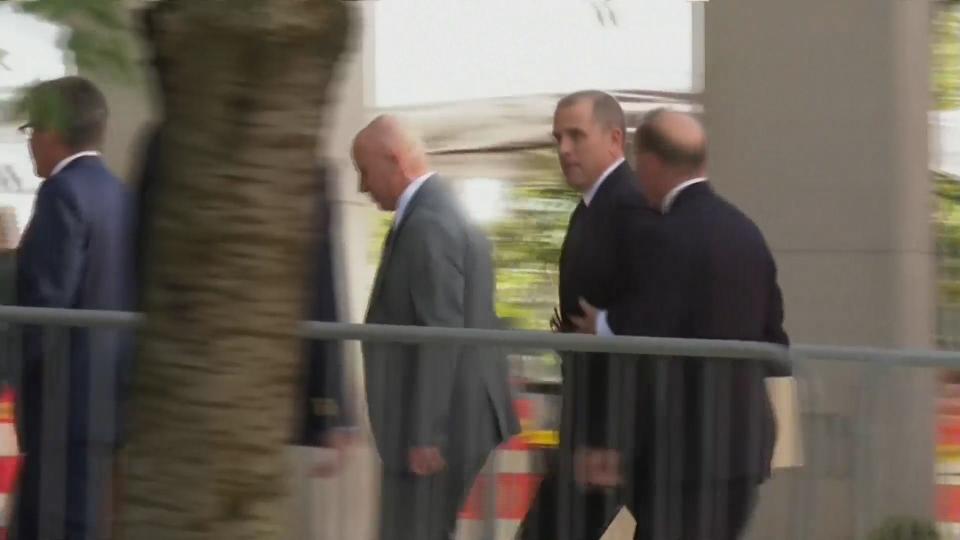
What is the Foreign Agents Registration Act?
Congress adopted the Foreign Agents Registration Act in 1938 – and updated it many times – to reduce the influence of foreign propaganda. "Foreign agents," who are defined as operating under the direction or control of a foreign government that seeks to influence U.S. policy, must register with the Justice Department to disclose their efforts. A related statute prohibits acting as a foreign agent.
The problem with the act, according to legal experts, is determining when somebody is just advocating for another country and when the person is acting under the foreign government's "direction or control," as the statute states.
“Part of the problem is that the law is very vague. Nobody knows what it means to be an agent,” said Michael Schachter, a former federal prosecutor and now a partner at Willkie Farr and Gallagher, who won an acquittal for a defendant charged with being a foreign agent. “It’s a very vague statute and it’s capable of being misused by the Justice Department.”
For example, Schachter opened a trial noting that McDonald's closed 850 restaurants in Russia days after Ukrainian President Volodymyr Zelensky told Congress that U.S. businesses "must leave" that country. McDonald's did the right thing, but not under Ukraine's direction, Schachter said.
Likewise, people might advocate for Israel in its war against Hamas but don't need to register with the government, according to William Taylor, another lawyer who won the acquittal of a defendant in a case related to the act.
“A lot of people do things for the benefit of a foreign country,” said Taylor, a founding partner at Zuckerman Spaeder who won the acquittal of a defendant in a case related to the act. “It’s not always easy to distinguish between what somebody does because he’s in favor of a particular policy or wants to do something to benefit a country he likes – and somebody who’s got an agreement with the country to advocate on its behalf for money.”
Exemptions to registering were made for diplomacy, news gathering and commerce. The statute says “any person engaged in legal commercial transaction” is exempt, but should register if operating in the U.S. “subject to the direction or control of a foreign government or official.” The statute also has a five-year limit on prosecutions.
"It has to be lobbying or public relations," said Neama Rahmani, a former federal prosecutor and founder of West Coast Trial Lawyers. "If it's just commercial activity, that's exempt."
What did Hunter Biden do for Ukrainian, Chinese businesses
Hunter Biden served on the board of Burisma Holdings Ltd., an oil and gas company in Ukraine, from May 2014 and left in April 2019, from the time his father served as vice president until he began running for president. The arrangement raised concerns about potential conflicts because the Obama administration was trying to influence Ukraine's policy.
Congressional Republicans have also alleged Hunter Biden and his associates received millions of dollars from Chinese entities such as State Energy HK Ltd. and CEFC China Energy Co. Ltd. GOP lawmakers called CEFC "an extension of the Chinese government."
A document filed with Hunter Biden's rejected plea agreement said in 2017 he earned "just under $1 million" from a company he formed with a Chinese CEO, $664,000 from a Chinese infrastructure company and $500,000 in director's fees from Burisma.
“We will continue to follow the Bidens’ money trail to determine whether foreign actors targeted the Bidens, President Biden is compromised, and our national security is threatened,” said Rep. James Comer, R-Ky., head of the House Oversight and Accountability Committee.
But Devon Archer, a business associate at Burisma, told the committee “there was no business conversation” when Hunter Biden put his father on the speaker phone about 20 times during a 10-year partnership.
"It was, you know, just general niceties and, you know, conversation in general about the geography, about the weather, whatever it may be,” Archer said.
The top Democrat on the committee, Rep. Jamie Raskin of Maryland, said at an impeachment inquiry hearing Republicans had no evidence linking Hunter Biden’s business deals to President Joe Biden.
"Back in the reality-based world, the majority sits completely empty-handed with no evidence of any presidential wrongdoing, no smoking gun, no gun, no smoke,” Raskin added.
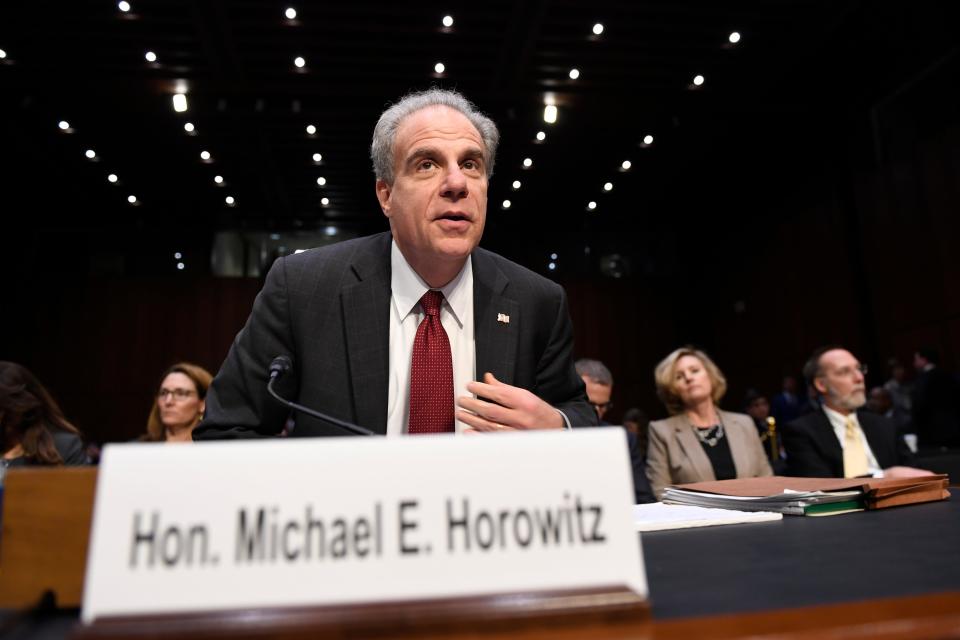
Prosecutions under FARA were 'rare' historically: inspector general
The department’s Justice Manual, which offers written guidance about how to pursue cases, directs inquiries about the act to the registration unit. In past decades, if authorities notice a potential violation, the department traditionally sent a letter asking the person to register retroactively, according to congressional testimony and legal experts.
No prosecution is to begin without the authorization of the National Security Division, the manual says.
Michael Horowitz, the Justice Department’s inspector general, reported in September 2016 that prosecutions and other enforcement under the act were “rare.”
From 1966 to 2015, the department prosecuted seven FARA cases that resulted in five convictions, but only three on FARA charges, Horowitz found. FBI agents expressed frustration with a perceived reluctance to pursue, although the National Security Division denied the criticism.
Revelations about foreign attempts to influence U.S. policy shined a spotlight on FARA enforcement and criminal prosecutions ramped up.
Investigations by special counsel Robert Mueller and agencies in the intelligence community found Russia interfered in the 2016 election by hacking Democratic Party emails and spreading favorable information about Republican nominee Trump while discrediting Democratic nominee Hillary Clinton. Mueller's team and other prosecutors won several convictions under the act.
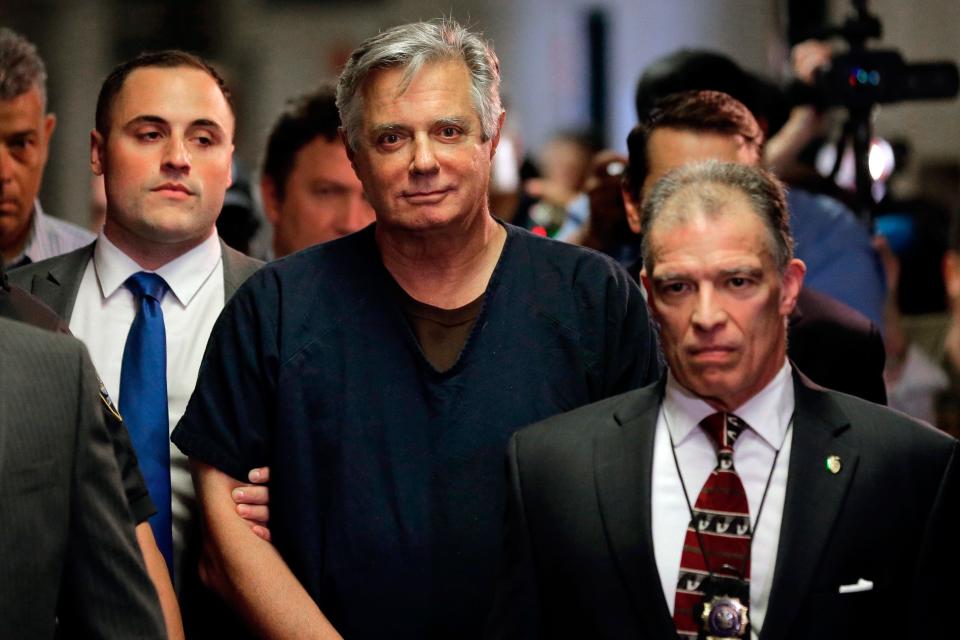
Trump allies Paul Manafort, Elliott Broidy were convicted of FARA violations and pardoned
Criminal prosecutions under the act targeted several of Trump's allies:
? Paul Manafort, Trump’s campaign chairman in 2016, pleaded guilty in 2018 to a conspiracy charge based, in part, on failing to register as a foreign agent for Ukraine and former President Viktor Yanukovych. Manafort was also convicted at trial of defrauding banks and taxpayers. Trump pardoned Manafort.
? Michael Flynn, Trump’s first national security adviser, pleaded guilty to lying to the FBI about meetings with Russians during the transition from the Obama administration. In a statement accompanying the plea, Flynn admitted making false statements related to FARA for work benefiting Turkey. Flynn registered retroactively as a foreign agent in February 2017 and disclosed he received $530,000 from a Dutch firm with ties to Turkey’s government. Trump pardoned Flynn.
? Elliott Broidy, a fundraiser for Trump and the Republican Party, pleaded guilty in 2020 to conspiracy to violate FARA by lobbying senior government officials for Chinese and Malaysian interests. He acknowledged lobbying to deport a Chinese dissident, Guo Wengui, and to drop the fraud and money-laundering prosecution of 1Malaysia Development Berhad. Trump pardoned Broidy.
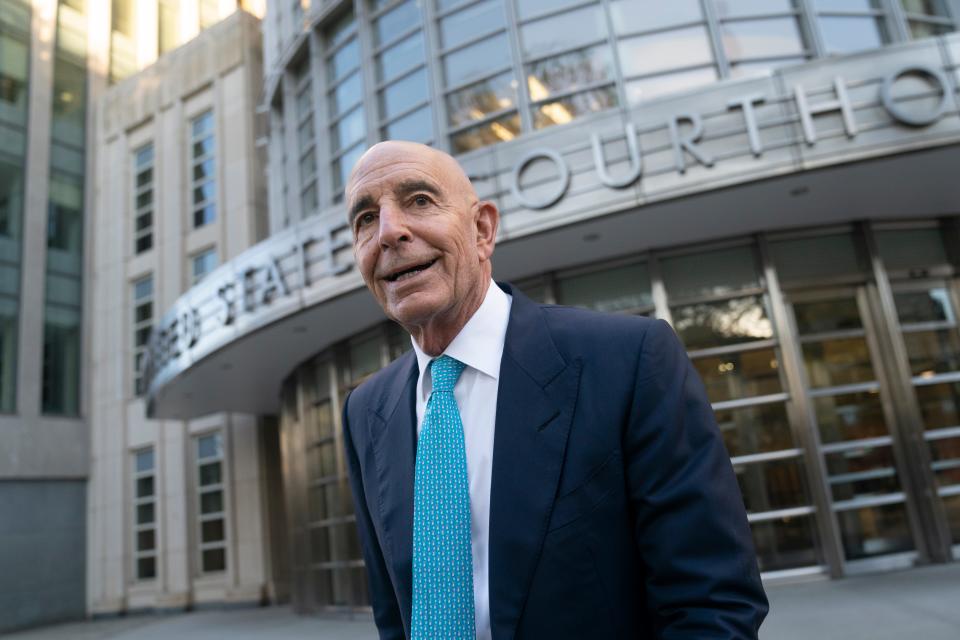
Some cases FARA dismissed; defendants won acquittals
? Bijan Rafiekian, who was director and vice chairman of Flynn Intel Group, was charged in 2018 with failing to register as an agent for Turkey aiming to win the extradition of a cleric living in the U.S. But the Justice Department dropped the charges in September, after two trips to the Fourth U.S. Circuit Court of Appeals.
? Tom Barrack, who was chair of Trump’s 2017 inauguration, was acquitted in November 2022 of charges he was a foreign agent who used his access to Trump to promote the interests of the United Arab Emirates. Others who called UAE an "important ally" included Presidents Barack Obama and George W. Bush, Schachter said at trial.
? Greg Craig, a former White House counsel in the Obama administration, was acquitted of FARA-related charges in September 2019. He was charged with making false statements to federal investigators about whether he was required to register under FARA for his work on a report about a Ukrainian opposition figure. But Craig testified in his own defense saying he didn’t view himself as doing the bidding of Ukraine.
“The case was about Greg’s trying to correct the statements about a report he’d written,” said Taylor, his lawyer. "But he wasn’t doing it for the benefit of the government of Ukraine, he was doing it to protect his own reputation.”
Schachter, who was Barrack's lawyer, said the defendant was jailed for four days under charges a jury ultimately rejected.
“Of course, they overstepped,” Schachter said of prosecutors. “They charged an innocent man with a crime and took away his liberty.”
An assistant to Barrack, Matthew Grimes, was also acquitted of charges he was a foreign agent. Grimes was represented by Lowell, a lawyer now representing Hunter Biden. Lowell told CNN after Grimes' acquittal the case represented "overreaching and overcharging."
"The system needs more supervision to prevent these kinds of cases from being filed," Lowell said.
Lowell declined to comment on the Grimes case or the Hunter Biden investigation.
Hunter Biden's scuttled plea deal revealed FARA inquiry
The long-running federal investigation of Hunter Biden has touched on FARA issues, as revealed by House Republicans and during the court hearing over his abandoned plea deal. But he has not been charged with any violations.
House Republicans released an email Lesley Wolf, an assistant U.S. attorney in Delaware, wrote on Aug. 7, 2020, about a draft search warrant.
“Please focus on FARA evidence only,” Wolf wrote.
In July, Hunter Biden was expected to plead guilty to two misdemeanors for not paying taxes in 2017 and 2018, and entering a pretrial program for a gun violation.
But U.S. District Judge Maryellen Noreika rejected the agreement because of disputes between prosecutors and defense lawyers. One dispute was over whether the agreement protected Hunter Biden from future prosecution under FARA.
“Could the government bring a charge under the Foreign Agents Registration Act?” Noreika asked at the hearing on July 26, noting that the “facts section” of the deal referred to foreign companies.
“Yes,” replied Leo Wise, one of the prosecutors.
But Christopher Clark, one of Hunter Biden’s lawyers, disagreed.
“As stated by the government just now, I don’t agree with what the government said,” Clark said.
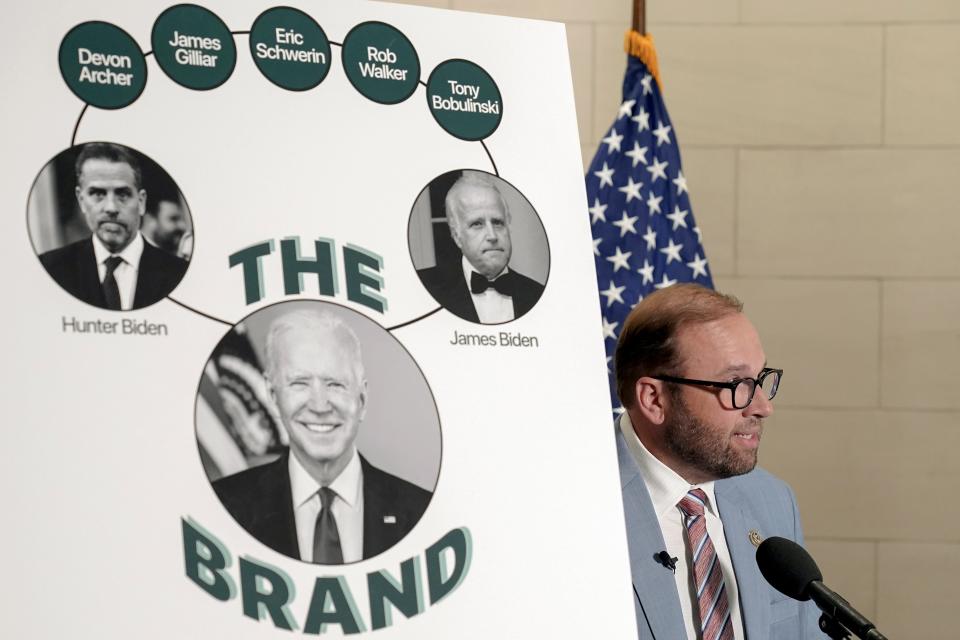
GOP lawmakers question of lack of FARA charges against Hunter Biden
Republican lawmakers have questioned the lack of FARA charges against Hunter Biden for years:
? Sens. Chuck Grassley, R-Iowa, and Ron Johnson, R-Wis., released a report in September 2020 saying that “CEFC was an extension of the Chinese government and that CEFC intended to alter U.S. policy and public opinion to its benefit and that the Chinese government would be the principal beneficiary of those actions.”
? Rep. Jason Smith, R-Mo., who heads the Ways and Means Committee, released more documents on Sept. 27 about Hunter Biden’s business deals. “Even more alarming, the Biden family foreign influence peddling operation suggests an effort to sway U.S. policy decisions,” Smith said.
? Rep. James Comer, R-Ky., who heads the Oversight and Accountability Committee, commended Noreika for “refusing to rubberstamp” the plea deal. “Today, the Department of Justice revealed Hunter Biden is under investigation for being a foreign agent,” Comer said July 26.
The charges against Trump’s inner circle – combined with the lack of charges against Hunter Biden – is why some Republicans contend there is a two-tier system of justice.
“What infuriates people is the uneven application of the law,” said Rep. Darin LaHood, R-Ill., a former federal prosecutor.
Without mentioning foreign registration specifically, Attorney General Merrick Garland has said the investigation of Hunter Biden will be handled fairly. Weiss will produce a report about what charges he chose to pursue or decline as special counsel.
"The Justice Department treats everyone alike regardless of party, regardless of ethnicity, regardless of wealth," Garland told the House Judiciary Committee on Sept. 20. "I understand that people may not understand why particular investigations are conducted in particular ways until all the facts come out. That's what we have a court for."
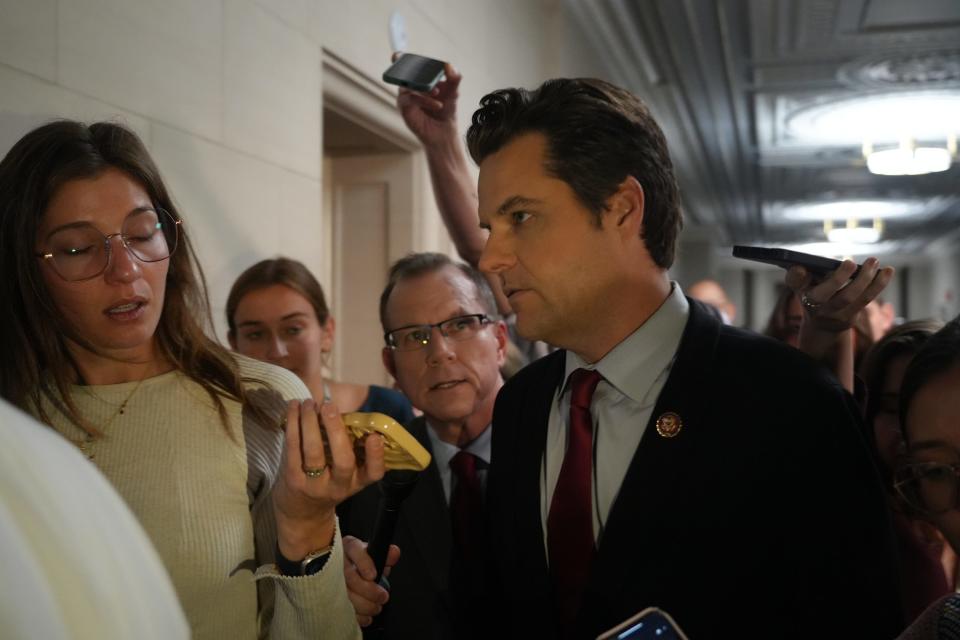
Not enough evidence to impeach Joe Biden yet: House witnesses
House Republicans have tried for years to tie Hunter Biden's overseas business deals to the president, but witnesses at a Sept. 28 House Oversight hearing said there was not enough evidence for charges yet.
“They're merely allegations and they should not become presumptions of impeachable conduct,” said Jonathan Turley, a law professor at George Washington University.
Bruce Dubinsky, a forensic accountant, said he wouldn’t prejudge the information.
“I am not here today to even suggest that there was corruption, fraud, or any wrongdoing,” Dubinsky said.
White House spokesperson Sharon Yang called the hearing a "baseless stunt" by Republicans and a waste of time for "peddling debunked lies."
"This flop was a failed effort to distract from their own chaos and inability to govern that is careening the country towards an unnecessary government shutdown that will hurt American families," Yang said.
A few days later, Rep. Matt Gaetz, R-Fla., said in arguing to oust Speaker Kevin McCarthy, R-Calif., “it is difficult to champion oversight when House Republicans haven’t even sent a subpoena to Hunter Biden.”
“It is hard to make the argument that oversight is the reason to continue when it sort of looks like failure theater,” Gaetz said.
This article originally appeared on USA TODAY: Hunter Biden investigated as possible 'foreign agent' for DOJ registry